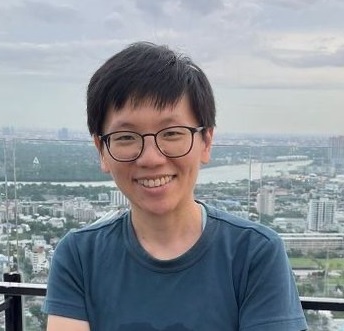
Dr. Ting-Ying Wu, an assistant research fellow who joined IPMB in 2022, has long dedicated herself to the field of plant and microbial biology. To have a better understanding of Dr. Wu, we interviewed her and asked her to share her educational background and work experience with us.
Education and Work Experiences:
🔹2017- 2022 Research Fellow, Temasek Life Science Laboratory at National University of Singapore
🔹2014- 2017 Ph.D., Biology, ETHZ, Zurich, Switzerland
🔹2011 – 2013 M.S., Biochemical Science and Technology, National Taiwan University, Taiwan
🔹2007 – 2011 B.S., Life Science, National Taiwan University, Taiwan
Educational background.
When I was a freshman taking “General Biology” course, I developed a particular interest in plants. Therefore, I took some courses related to plants in the Department of Agronomy and Plant Pathology and Microbiology, including a course on rice genomics taught by Professor Yue-Ie Hsing in my junior year, and a course on “Green Biotechnology” introducing the development of plant technology taught by Professor Ming-Hsiun Hsieh in my senior year, both of which I found fascinating. Later, during my graduate studies in the Department of Biochemical Science and Technology at National Taiwan University, I met Professor Yee-Yung Charng, who introduced me to research on high-temperature stress, leading me down a series of research paths. During my doctoral studies, I worked in the laboratory of Professor Wilhelm Gruissem at the Swiss Federal Institute of Technology in Zurich (ETH), where I was given considerable freedom in my research direction, and had access to abundant academic resources at ETH. Moreover, I had the opportunity to engage in discussions and exchange ideas with excellent peers, which allowed me to witness what it means to be a “great scientist”. I still keep in touch with them to this day.
Overseas experiences.
During my doctoral studies, I conducted research at the ETH, with a focus on biotechnology and applied science, including areas such as enhancing the nutritional value of rice and analyzing/utilizing big data. After graduation, I worked as a postdoctoral research fellow at the Temasek Life Science Laboratory in Singapore. My research focused on achieving the goal of “30 by 30,” which aims to achieve 30% food self-sufficiency in Singapore by 2030. Finding this research aligned with my experience and interests, I stayed in Singapore for five years. After that, I decided to conduct pure academic research, and that’s why I came to the IPMB.
Research interest.
Our laboratory mainly focuses on studying the evolution of plants from aquatic to terrestrial environments, and how they develop adaptive traits during this process. We investigate what similar stress response mechanisms are retained in terrestrial plants and what kind of protective mechanisms are gradually developed. We also compare early and late terrestrial plants to identify similarities and differences in their adaptation mechanisms to stress. My long-term research goals also include using information obtained from big data to design precise gene circuits that enhance plants’ tolerance to different environments.
Interests and hobbies outside of research.
My primary leisure activity is running marathons. When in Switzerland, I participated in the relay race around Lake Zurich with my lab coworkers every year. When I was in Singapore, I also joined various kinds of marathons. Even now, I still run 30 to 40k per week. Aside from marathons, I enjoy watching European and American dramas, particularly detective and comedy genres, in my spare time. I like studying each character in the drama and reading reviews to gain a better understanding of the show. Additionally, I love exploring coffee shops and when traveling, I always look for famous or unique local cafes to taste their coffee.
Words to students interested in pursuing science careers.
Pursuing scientific research can be challenging, but it is also a rewarding and exciting journey. Having a passion for science is crucial in this field. Your interest can sustain your motivation, help you overcome obstacles, and guide you towards discovering breakthroughs and innovations. Additionally, I suggest that during academic years, take the time to explore and find your passions. Attend seminars, participate in research projects, and engage with peers and professors. Don’t be afraid to ask questions and seek guidance from experienced professionals. There may be unexpected gains from such interactions.
To know more about Dr. Wu, you can:
Visit IPMB Faculty page:
https://ipmb.sinica.edu.tw/ch/people/ipmb_researchers/wu-ting-ying
Visit Google Scholar:
https://scholar.google.com/citations?user=ZWzE6nQAAAAJ&hl=en
Follow Twitter account: @lbnest21
